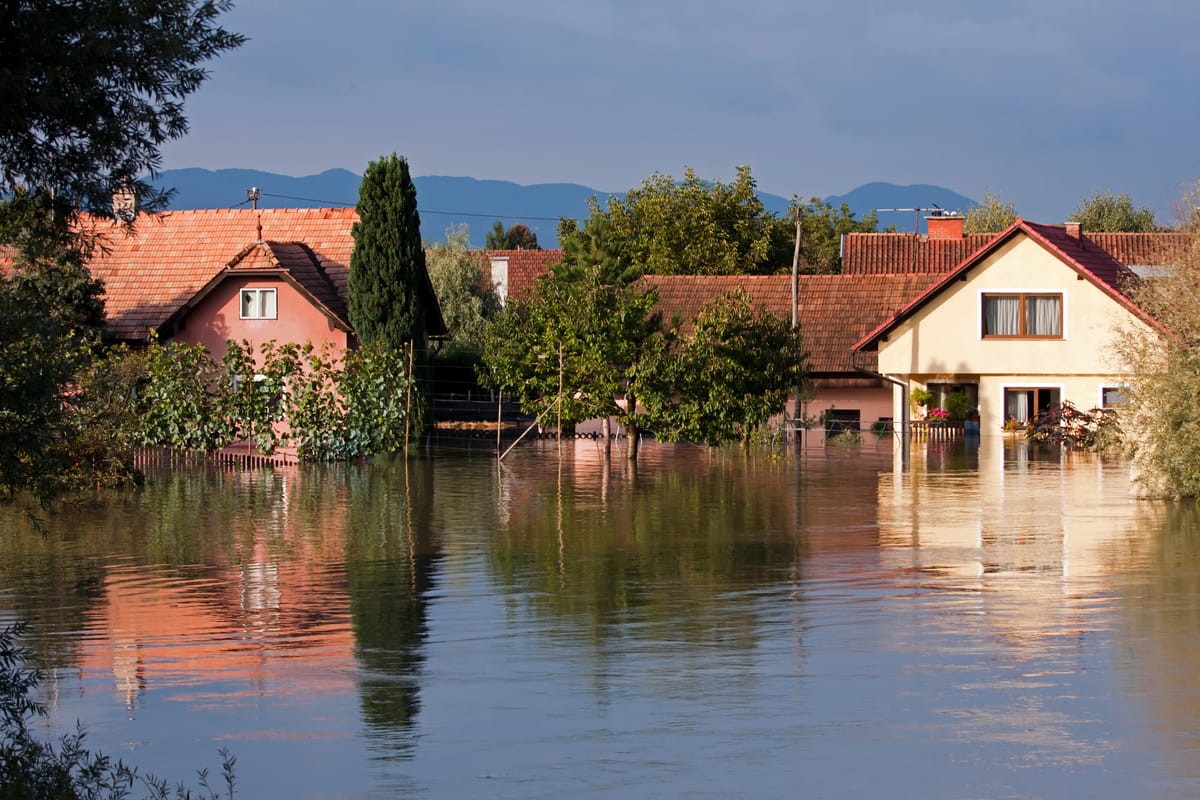This week, we're exploring the rising need for climate adaptation funds, the installation of solar panels on balconies in Germany, and an effort to save high-speed rail in California.
If you enjoy our Weekly Brief, please consider sharing it with your friends and colleagues in the climate community and encourage them to subscribe here. You can also follow Tectonic on LinkedIn and Instagram for more regular updates.
Climate adaptation to top $4 trillion: According to a new report co-authored by Singapore’s sovereign fund, climate adaptation revenue is expected to reach $4 trillion by 2050. The report identifies key industries that will benefit from adaptation solutions, including firefighting technology and flood insurance. The adaptation sector is expected to deliver stronger returns than mitigation strategies, with the combined debt and equity value of adaptation solution providers potentially growing to $9 trillion by 2050.
Klarna founder backs climate VC: Norrsken VC, a venture capital firm founded by Klarna co-founder Niklas Adalberth, plans to invest in climate-friendly startups in Europe. The firm's general partner, Agate Freimane, believes the Trump Administration's "anti-climate" stance has created opportunities for investment by depressing valuations of target companies. Despite the risk and a recent loss from an investment in battery maker Northvolt, Norrsken VC remains committed to investing in the sector, citing the need for Europe to develop its own battery supply chain.
PM Starmer defends UK net zero policy: Keir Starmer defended the UK's net zero policy after criticism from former Labour prime minister Tony Blair, who argued that attempts to phase out fossil fuels in the short term are "doomed to fail". Blair suggested that policymakers should focus on technological solutions such as carbon capture and storage, rather than making "financial sacrifices and changes in lifestyle" that would have a minimal effect on global emissions. Starmer stressed the government is already implementing many of the measures recommended by Blair, and that the UK's net zero policy is aligned with the need for jobs and security in the future.
Solar panels on balconies: Germany has over 780,000 registered balcony solar panels, with millions more installed without registration, due to their ease of use and affordability. In the US, there is no market for balcony solar, largely due to regulatory barriers, including the lack of a safety standard and compatibility with the National Electrical Code. Utah has passed a bill to boost balcony solar, but bigger obstacles remain, including the need for a UL standard and compliance with national electrical guidelines, with companies like GismoPower working to develop these standards.
Slate Auto reveals new EV: Slate Auto, backed by Jeff Bezos and Eric Schmidt, is launching a customizable EV priced at $20,000 after federal tax credits. The basic model, called the Slate Truck, is a two-door, two-seat electric pickup that can be upgraded with over 100 accessories, including a longer-range battery and conversion to a five-seat SUV. The company aims to make EVs more affordable and plans to build a factory in the Midwest, with deliveries expected to start in the fourth quarter of 2026.
AirCo launches concept store: AirCo, a Brooklyn-based startup, has created a concept store called The Fuel Store to showcase its technology that turns captured CO2 into synthetic fuels. The company's fuel is made by combining CO2 with hydrogen using renewable energy, and it can power vehicles across land, air, sea, and space. AirCo has partnerships with companies like JetBlue, Virgin Atlantic, and the US Department of Defense, and its fuel has been successfully tested in various applications, including aviation, marine vessels, and land transportation.
Farmers in California embrace solar: Farmers in rural California are converting their land to harvest solar power. According to a study, agrisolar practices in California's Central Valley can produce $124,000 per hectare per year, 25 times the value of growing crops, and power around 500,000 households. Researchers believe that agrisolar can be a compromise between energy independence and food security, allowing farmers to grow crops under solar panels and use the land for grazing livestock.
High-speed rail in California: California's high-speed rail project, which aims to provide nonstop rail service between San Francisco and Los Angeles in under three hours, may secure private funding if the state agrees to pay investors back. The project's price tag has exceeded $100 billion, more than triple the initial estimate, and the state is now out of bond money, prompting the need for a new financing plan. CEO Ian Choudri is pushing for a program that would commit the state to paying back private investors, possibly with interest, to give the state more time to cover the cost and potentially save the project.
Chinese EV company BYD's profits surge: BYD's quarterly profit surged 100.4% to 9.2 billion yuan, the fastest pace in nearly two years. The company's revenue increased 36.4% year-on-year to 170.4 billion yuan, driven by its lead in the Chinese electric vehicle market. BYD is extending its lead in the market by launching a price war for smart EVs, prompting rivals like Leapmotor, Geely, and Toyota to follow suit with affordable EVs containing smart features.
Hydropower project in Africa seeks investment: Zambia and Zimbabwe are seeking investors for the $5 billion Batoka Gorge hydropower project, a 2,400-megawatt facility near Victoria Falls. The project was delayed due to the coronavirus pandemic and funding difficulties, with Zambia withdrawing from a previous contract in 2022. The countries face challenges in securing funding due to their debt distress, with Zimbabwe owing $21 billion. Zambia is still finalizing a loan restructuring and is exploring climate-related financing mechanisms.


